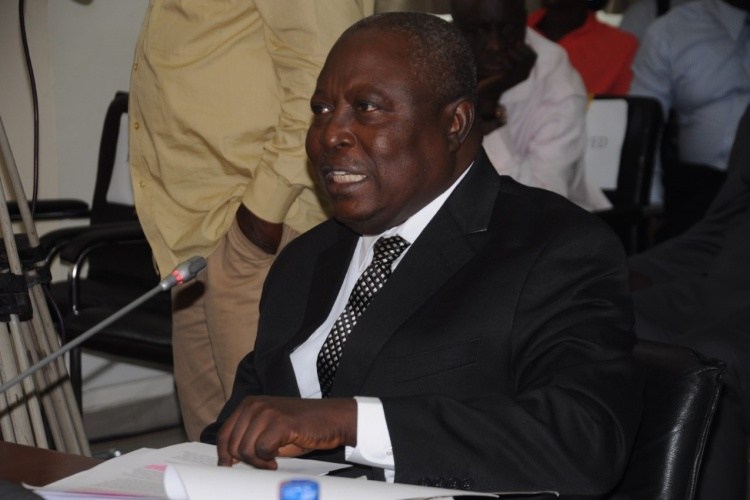Heads of institutions hindering fight against corruption – Martin Amidu
The work of the Special Prosecutor is allegedly being hampered greatly by heads of some government institutions in the country.
If such hindrances are not checked, the fight against corruption may not be won by the Akufo-Addo government and the purpose for which the Office of the Special Prosecutor was set up will be defeated as the office may make little or no impact.
This complaint was made by the Special Prosecutor, Martin Amidu, in a write-up in which he made known a litany of challenges the office was facing in its quest to fight corruption in the country.
According to him, some heads of institutions are simply refusing to comply with the laid down regulations of good governance and the protection of the national purse.
“The biggest challenge facing the Office of the Special Prosecutor as an anti-corruption investigatory and prosecutorial body in spite of all the powers conferred upon it is not the President who promised the people of Ghana to establish the Office but the heads of institutions who simply refuse to comply with laws designed to ensure good governance and to protect the national purse by fighting corruption.”
Mr. Amidu wrote in his piece that the “heads of institutions wantonly disregard statutory requests made by the Office for information and production of documents to assist in the investigation of corruption and corruption-related offences, in spite of the fact that the President has on a number of occasions admonished them on such misconduct.”
The Special Prosecutor said he has the right to sue such institutions through the Attorney if they refuse to release documents to help in investigations.
“The Office of the Special Prosecutor Act empowers the Office to enforce the production of information and documents in the Courts against any public institution that fails or refuses to honour the lawful request of the Office. This Office can also go to the High Court to compel heads of institutions to obey the laws that support the fight against corruption. The consequence will be that in accordance with the civil procedure rules this Office will have to sue the Attorney General as the representative of the State.”
He also complained about interferences from some of these agencies, whose names he did not mention in the write-up.
“There have also been cases where some heads of institutions have made it their habit to interfere with and undermine the independence of this Office by deliberately running concurrent investigations falling within the jurisdiction of this Office with on-going investigations in this Office for the sole purpose of aborting investigations into corruption and corruption-related offences.”
The Office of the Special Prosecutor has been chastised by Ghanaians for being ineffective in its fight against corruption over a year since it was established.
But Amidu complained that, although his outfit is doing everything possible to fight corruption, such hindrances are making things difficult.
“Some of the foregoing malfeasance has seriously affected the ability of this Office to deliver on its mandate, particularly when it must depend on some of these very institutions for seconded staff until it employs its own. The questions of anti-corruption work values and culture, and condoning indiscipline by some seconded staff by their parent institutions have surfaced and become public in some instances.”
“What is worrying to this Office as an anti-corruption investigation and prosecutorial agency is the refusal of heads of institutions to take steps to enforce basic rules of discipline governing their institutions even when they know that their officers are under investigation, have been cautioned, bailed, and eventually even charged with corruption and corruption-related offences.”
He stated that per law, when a public officer is under investigation, he or she has to be interdicted but the heads of such agencies deliberately refuse to do that.
“Unfortunately, the experience of the Office of the Special Prosecutor is that when it comes to fighting corruptions and corruption-related offences, heads of institutions think that the rules on interdiction and/or indefinite leave of public officers do not apply to corruption and corruption-related offences.”
Mr. Amidu in his piece urged the public and civil society organizations to support his work.
“The Office of the Special Prosecutor cannot fight corruption unless the public and civil society give it their fullest support and put pressure on the political elite to obey the laws that enable the Office to achieve its mandate.”
“The President, the Minister of Finance, the Chief of Staff, the Auditor General, the Commission for Human Rights and Administrative Justice, and the Financial Intelligence Center have been very supportive of the Office thus far. But the response by other heads of institutions to the instructions from the Executive Branch appears to have been treated with impunity as far as the records show. Corruption cannot be fought on the so-called reputation of a few people. Every citizen needs to get involved now before the canker consumes the whole body politic,” he added.



